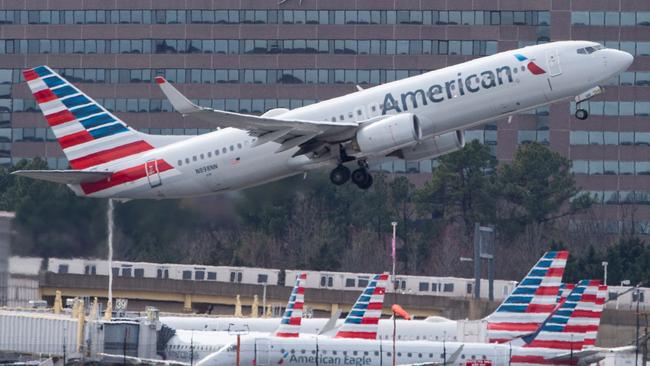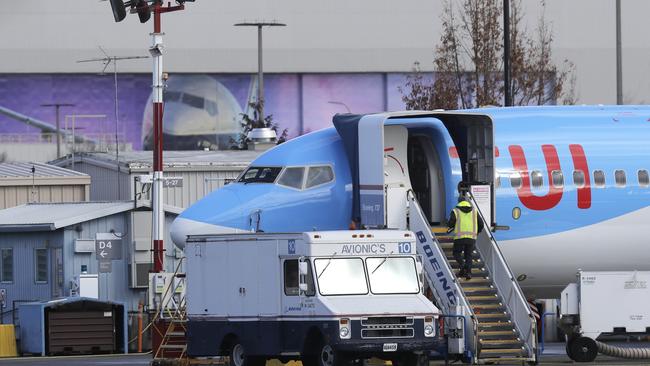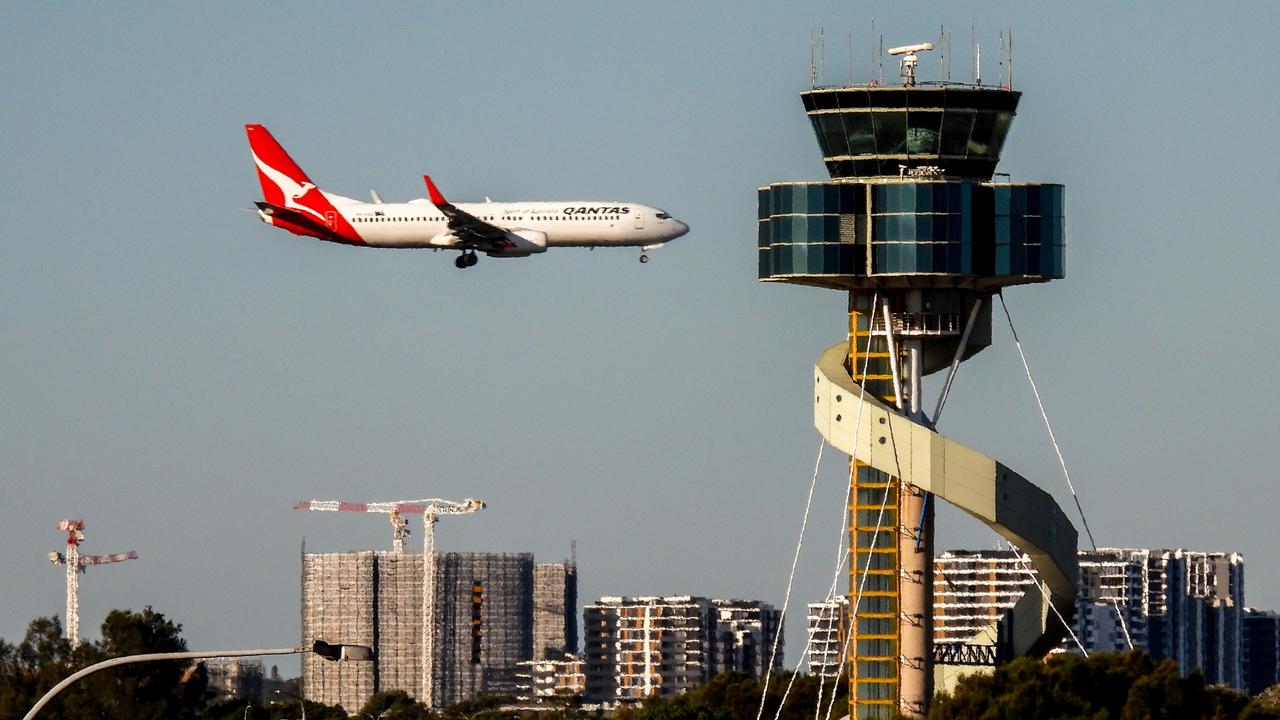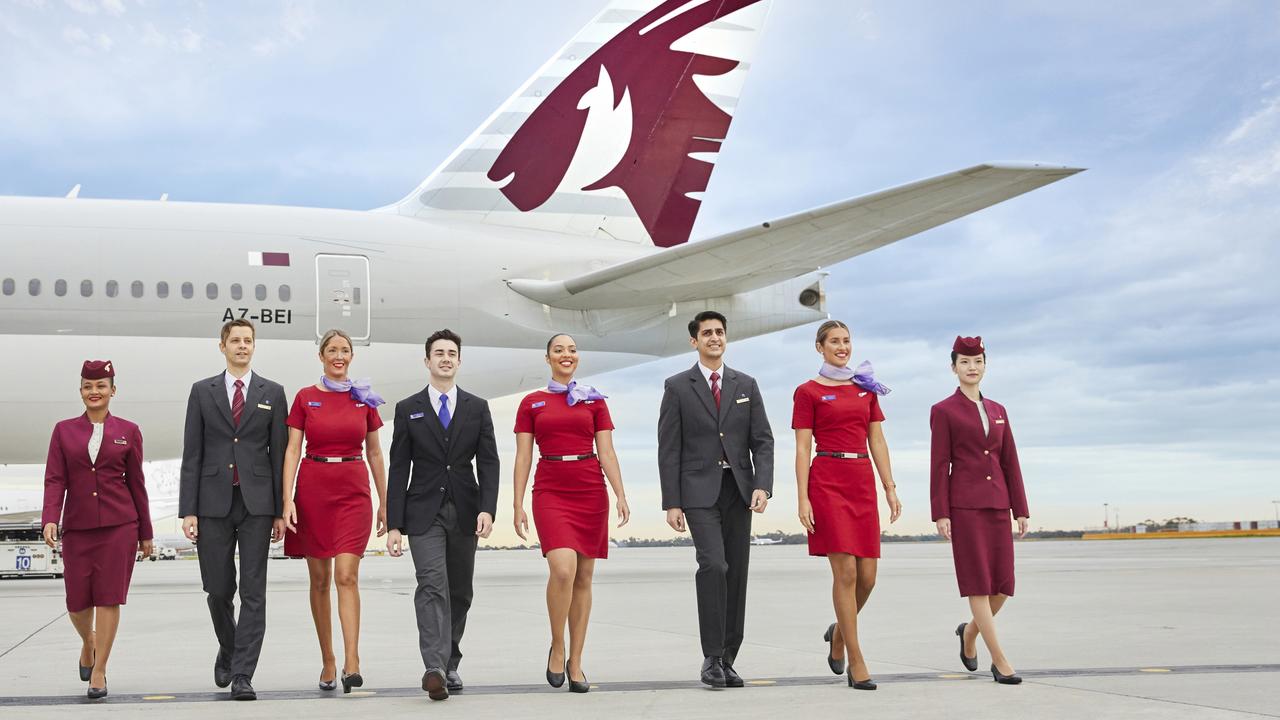Donald Trump grounds Boeing 737 Max 8, Max 9 jets after Ethiopia crash
Donald Trump issues an emergency order grounding all Boeing 737 Max 8 and 9 planes after the Ethiopian disaster.

Donald Trump has grounded 737 Max aircraft across the US, bowing to enormous pressure after aviation authorities around the world banned the plane following its second deadly crash in five months.
Mr Trump’s move came only hours after Canada joined numerous other countries in grounding the plane.
With the US left as the last large country using the aircraft, Mr Trump declared an “emergency order’’ grounding them immediately.
“Any plane in the air will fly to its destination and then be grounded,’’ he said.
“The safety of the American people and all people is our concern. Our hearts go out to all those who lost loved ones ... it’s a terrible terrible thing.’’

Mr Trump grounded the 737 Max 8 — which was involved in the Lion Air and Ethiopia Airlines crash — as well as the related Max 9 model.
“Boeing is an incredible company they are working very very hard right now and hopefully they will very quickly come up with the answer but until they do the planes are grounded,” he said.
Boeing shares fell more than 3 per cent on this morning’s announcement.
“We are supporting this proactive step out of an abundance of caution,” Boeing CEO Dennis Muilenburg said in a statement.
The declines for the shares over the past three days, would represent, the worst weekly decline, off 13.2 per cent, since a 13.4 per cent decline in the week ended June 26, 2009, according to FactSet data. The drop has erased roughly $US33 billion in market value from the aviation and defence giant’s shares since last Friday.
The president’s move forced the hand of the US Federal Aviation Administration which had refused to ground the plane on the grounds that it had no evidence of a specific fault that would justify it.
Boeing had also declared that the plane was safe and had not recommended that it be grounded.
The crash of the Ethiopian Airlines 737 Max 8 shortly after take off this week followed the crash of an Indonesian Lion Air 737 Max 8 last year with the combined loss of more than 300 passengers.
Australia, China, Indonesia and Ethiopia were among the countries that quickly grounded or banned 737 Max 8 jets until further investigation and they were later joined by Britain, German, France and the European Union Aviation Safety Agency amongst others.
In the US the Max 8 model is flown by Southwest, which has 34 of them and by American Airlines which has 24.
The US action comes after Canadian Transport Minister Marc Garneau said that satellite-tracking data indicated “a possible, although unproven, similarity” between the Ethiopian Airlines jet and October Lion Air disaster.
Aireon LLC, a company that provides air traffic surveillance through a global network of satellites, said it provided the detailed information about the Ethiopian Airlines’ flight information in the past two days to Canadian authorities, as well as the FAA, the US National Transportation Safety Board and other authorities, after they requested the data, a spokeswoman for the company said.
The company uses equipment on satellites to track data that plane transponder transmits, including a flight’sspeed, altitude, heading, and position. Updates are provided at intervals of less than every 8 seconds to provide a global, near-real-time picture of flights. Such data can be used to reconstruct a flight path, and spot occurrences where planes fly erratically.
The pilot of the Ethiopian Airlines jet that crashed Sunday reported that he was having flight-control problems and wanted to return to the airport, but didn’t indicate any other technical faults or other difficulties during the jet’s short ascent, according to the carrier’s chief.

In an interview with The Wall Street Journal, Chief Executive Tewolde Gebremariam declined to discuss the flight or the crash investigation further, but said the conversation between the pilot and ground control didn’t point to any external issues, such as a bird collision, that might help investigators narrow the possible causes. The pilot “reported back to air-traffic controllers that he was having flight-control problems” and wanted to return to Addis Ababa, Mr Gebremariam said.
The US grounding marks the biggest aviation safety setbacks for Boeing since 2013 when US regulators suspended flights of the 787 Dreamliner. The FAA in January 2013 grounded the global fleet of brand new Dreamliners because its lithium-ion batteries caught fire. Planes remained on the ground for three months as Boeing scrambled to convince regulators it had a safety fix for the problem.
The scale of the 737 MAX grounding is far larger. Boeing had delivered around 50 Dreamliners to a small number of carriers when the fleet was parked over safety concerns. The planemaker had delivered 376 of its 737 MAX planes between the first handover in May 2017 and the end of February.
Despite the grounding and negative headlines the Dreamliner drew at the time, the long-range jet has continued to be a sales success for Boeing. The company has secured more than 500 additional orders and has about 800 of the planes in service.
Apart from a growing reputational crisis, Boeing faces mounting commercial pressure, too. Lion Air said Wednesday it had asked Boeing to delay deliveries of new MAX jets until the Indonesian investigation concludes later this year.
“This accident in Ethiopia has raised further questions that make us want to delay delivery of MAX planes until we can getassurance that they’re safe,” said Daniel Putut, Lion Air Group’s managing director. He said that Lion, with more than 201planes on order, hadn’t reached an agreement with Boeing over the sought-after delays.
Norwegian Air Shuttle ASA, one of the biggest 737 MAX customers, with 110 on order, said Wednesday it expects Boeing to compensate it for the financial impact of the suspension. .
While bigger airlines, with large fleets, have more flexibility to swap out aircraft, smaller carriers are more limited. Compensation from equipment makers for such service disruptions are common in the industry.
With The Wall Street Journal
(Cameron Stewart its also US Contributor for Sky News Australia)




